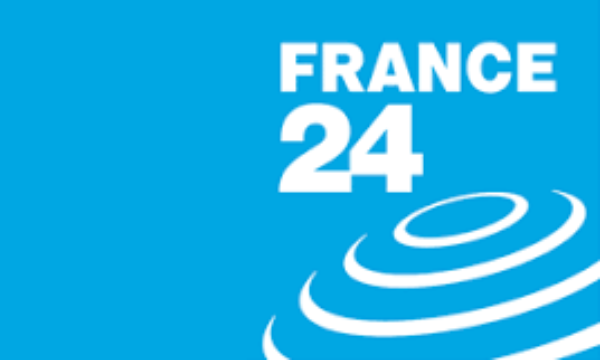The death of a doctor who first sounded the warning about the deadly coronavirus in Wuhan has sparked an outpouring of fury and grief at Chinese authorities seen as trying to censor news of the disease.
Ophthalmologist Li Wenliang, 34, died on Friday in Wuhan Central Hospital after first noticing symptoms of the disease on January 10.
/arc-anglerfish-syd-prod-nzme.s3.amazonaws.com/public/7NERPQZAFVGKXEHBPEXJR3J3FU.jpg)
Reporting of his death was shrouded in mystery after Chinese media shared the news, then quickly deleted it when it became a trending topic online.
The hashtag "Dr. Li Wenliang dead" was the most searched topic on Chinese social media site Weibo late Thursday, with over a billion views and over 1.1 million comments. But by Friday morning it had dropped out of the top 20 trending topics.
READ MORE:
• Coronavirus: Good news for evacuees under quarantine in Auckland
• How the coronavirus impacts you once you are infected
• Coronavirus: Halted flights strand hundreds of Chinese visitors in NZ
• Wuhan authorities ordered to round up coronavirus infected for mass camps
"The ranking seems to be manipulated," King-was Fu, who studies Chinese censorship patterns at the University of Hong Kong, told AFP.
The handling of the news "looks similar to that after Liu Xiaobo's death," he said, referring to censorship following the 2017 death of the jailed Nobel Peace laureate critical of the Chinese Communist Party.
"Some irregularities in handling the news of Li's death is perceived as politically motivated," Fu said.
Weibo users complained their posts and comments on the doctor's death were being scrubbed on Weibo and messaging app WeChat, sparking anger at what was seen as an attempt by censors to mute public opinion.
Li, 34, was one of eight medical professionals in Wuhan who first noticed a disease similar to SARS which killed nearly 800 people in a 2002-2003 outbreak.
He blogged about his findings and noted that seven patients had contracted the virus. On January 3 he was visited by police who forced him to sign a statement admitting to having spread falsehoods and warning him of punishment if he continued.
/arc-anglerfish-syd-prod-nzme.s3.amazonaws.com/public/37KSK4OO7BGFXDI3HQITQCYAQE.jpg)
By January 10 Li wrote he had developed a cough, fever on January 11 and was hospitalised on January 12, after which he began having trouble breathing.
On Friday as news of his death broke, he was hailed as a hero with a slew of tributes and fury at officials who scrubbed social media posts.
"He is a hero who warned others with his life," a fellow Wuhan doctor wrote on Weibo.
"Those fat officials who live on public money, may you die from a snowstorm," wrote another Weibo user in a comment that was later scrubbed. Meanwhile the hashtag "we demand freedom of speech" was censored.
The Communist government announced it would investigate the issues surrounding his death, in a sign leaders were rattled by the response. The foreign ministry and the National Health Commission expressed condolences.
Weibo expert Manya Koetse, who tracks trends on the site, said the case epitomises the distrust of authorities that have surrounded the viral outbreak.
"This very confusing reporting and people rushing to WeChat, to Weibo – being glued to their social media screens not knowing what to believe, what source to trust … epitomises this whole coronavirus outbreak, with people longing for trustworthy sources," she said.
WHO NOTES LOWER INCREASE
On Friday, WHO officials noted a drop in the number of new virus cases for two days running.
"The numbers could go up again … but the last two days were showing a declining trend," WHO director general Tedros Adhanom Ghebreyesus said.
China reported 31,161 cases in mainland China in its update on Friday. The rise of 3,143 was the lowest daily increase since at least Tuesday.
/arc-anglerfish-syd-prod-nzme.s3.amazonaws.com/public/2ZFIGX4745G6FFBRRHVNRP472M.jpg)
Earlier this week however, scientific research predicted coronavirus cases in China will double every six days, with some experts suggesting it will never be contained.
According to The Lancet, more than 75,000 people may have been infected with coronavirus in Wuhan — far exceeding the official number of cases reported by Chinese officials.
The scientific journal's estimation, that up to 300,000 people in Wuhan could now be infected with the virus, is based on modelling which indicated each infected person would infect an average of 2.68 others.
The report also estimated the Wuhan epidemic would peak in April if there was no breakthrough to reduce transmission.
Fifteen cases have been confirmed in Australia, including five people in Queensland, four in New South Wales, four in Victoria and two in South Australia.
41 PASSENGERS TEST POSITIVE FOR VIRUS
Another 41 people, including up to five Australians, on board a cruise ship off Japan's coast have tested positive for the new strain of coronavirus, Japan's health minister said Friday.
/arc-anglerfish-syd-prod-nzme.s3.amazonaws.com/public/YHNKPQYCENG5DKLTSDQRDS2K4I.jpg)
The new cases raise the number of confirmed infections on board the ship to at least 61, said Katsunobu Kato.
Japanese authorities have so far tested 273 people on board the Diamond Princess, which was quarantined after a former passenger, who disembarked in Hong Kong last month, was diagnosed with the virus.
"The results of the remaining 171 tests came out and 41 tested positive," Kato told reporters.
"Today they will be sent to hospitals in several prefectures, and we are now preparing for that."
"In total, out of 273 specimens, 61 tested positive," he added.
There were more than 3,700 passengers and crew on the ship when it arrived off Japan's coast on Monday evening. It docked in Yokohama on Thursday to resupply for a quarantine that could last until February 19.
Twenty people who were earlier diagnosed with the virus have already been removed from the vessel and taken to hospitals, including two Australians.
Testing was initially carried out on those who displayed symptoms or had come into contact with the former passenger diagnosed with the virus.
But Kato suggested additional testing would now take place.
Authorities will "test those who are susceptible to illness, including elderly people and those with other ailments, as well as those who had close contact with the people newly diagnosed with the virus," he said.
There were no immediate details on how many people would meet those criteria or when the testing might take place.
Japan has already reported at least 25 cases of coronavirus aside from the infections on board the ship, and evacuated hundreds of citizens from Wuhan, the Chinese city where the virus emerged.
A fourth evacuation flight carrying both Japanese citizens and non-Japanese spouses and those with other ties to the country arrived on Friday morning






